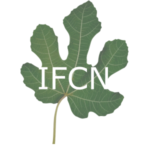It was announced on Sept. 15, 2016 that the “International Fact-Checking Network” had released its code of principles for fact checkers, with 35 organizations signing the document to commit to its principles.
Zebra Fact Check commits to the the International Fact-Checking Network’s statement of principles, according the caveats expressed in the following signing statement.
(1) A COMMITMENT TO NONPARTISANSHIP AND FAIRNESS
We fact-check claims using the same standard for every fact check. We do not concentrate our fact-checking on any one side. We follow the same process for every fact check and let the evidence dictate our conclusions. We do not advocate or take policy positions on the issues we fact-check.
As an experimental site created with a focus on helping fix the problems in the broader fact-checking movement, Zebra Fact Check exempts itself from concern over any tendency to “concentrate fact-checking on any one side.” We encourage the International Fact-Checking Network to carefully define what it means to “concentrate” on one side (Sixty percent? Eighty percent? One-hundred percent?) and properly subordinate this principle to the preceding one: It is much more important to apply fact-checking according to consistent standards than it is to meet some bipartisan quota of stories. A partisan fact-checker can easily fact check both sides in equal numbers, giving one side harsher evaluations than the other.
As a matter of record, Zebra Fact Check was created in large part to show fact-checkers the way toward principles that minimize subjectivity and allow for consistent application of principle.
Zebra Fact Check also recognizes that a market served by two fact checkers that exclusively check one side is well served if both services use fact-checking criteria that are fair and consistent. As such, we stipulate an unstated premise to the Network principle’s emphasis on checking both sides: Media markets dominated by uniformly biased fact-checking operations are unhealthy media markets.
(2) A COMMITMENT TO TRANSPARENCY OF SOURCES
We want our readers to be able to verify our findings themselves. We provide all sources in enough detail that readers can replicate our work, except in cases where a source’s personal security could be compromised. In such cases, we provide as much detail as possible.
We interpret this item in part as a commitment to publish interview questions and notes. As far as we know, Zebra Fact Check remains the first and only fact checker to publish its interview questions along with the full response received from interview subjects. If the International Fact-Checking Network does not mean to include that commitment in this principle, we encourage the Network to revise the principle to make clear what it stipulates and what it does not.
We do not see how readers can replicate a fact checker’s work without sufficient access to any interview questions and responses.
(3) A COMMITMENT TO TRANSPARENCY OF FUNDING & ORGANIZATION
We are transparent about our funding sources. If we accept funding from other organizations, we ensure that funders have no influence over the conclusions we reach in our reports. We detail the professional background of all key figures in our organization and explain our organizational structure and legal status. We clearly indicate a way for readers to communicate with us.
Zebra Fact Check regards the principle that “funders have no influence over the conclusions we reach in our reports” as redundant, given the earlier principle stipulating the same fair approach to every fact check. Zebra Fact Check commits to striving toward keeping story selection independent of funder influence. Where we suspect an influence may exist or have the appearance of existing, we will declare that prominently in the fact check as a matter of transparency.
(4) A COMMITMENT TO TRANSPARENCY OF METHODOLOGY
We explain the methodology we use to select, research, write, edit, publish and correct our fact checks. We encourage readers to send us claims to fact-check and are transparent on why and how we fact-check.
Zebra Fact Check commits to the above principle concerning methodology, recognizing that the editorial discretion that will inevitably guide story selection for all human fact checkers is, by nature, not fully transparent to readers. Indeed, an editor may not have the ability to fully articulate the draw of a particular story subject. “It seemed interesting” begs the question, we think, even if an editor tries to explain why it seemed interesting.
We take explaining the methodology of corrections to include a clear and complete explanation of what was wrong with the fact check, along with the steps taken to correct the error.
We do not set any importance to encouraging readers to submit fact check suggestions, and thus do not commit to that notion.
(5) A COMMITMENT TO OPEN AND HONEST CORRECTIONS
We publish our corrections policy and follow it scrupulously. We correct clearly and transparently in line with our corrections policy, seeking so far as possible to ensure that readers see the corrected version.
Zebra Fact Check commits to the above principle, with the intent of setting the industry standard for clarity, consistency, and transparency.
Zebra Fact Check suggests that the International Fact-Checking Network add the principle that fact-checking organizations that use a rating system shall refrain from publishing statistics aggregating their ratings for individuals or organizations. Any exceptions should be rare and should prominently explain that the data are unreliable as a result of the unscientific methods involved.


